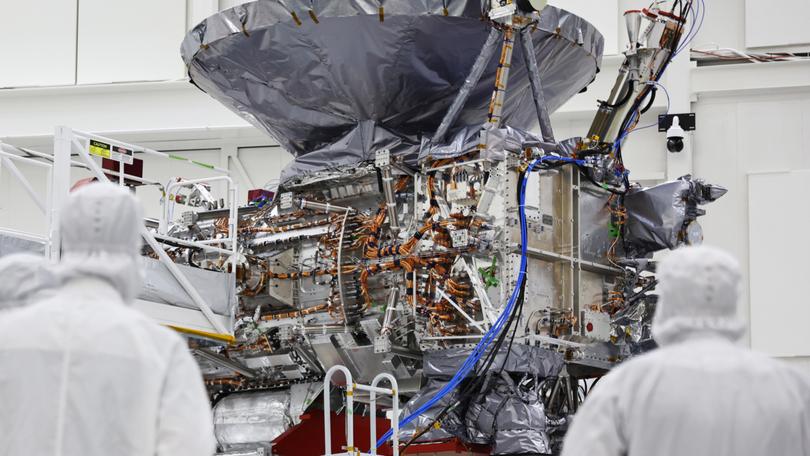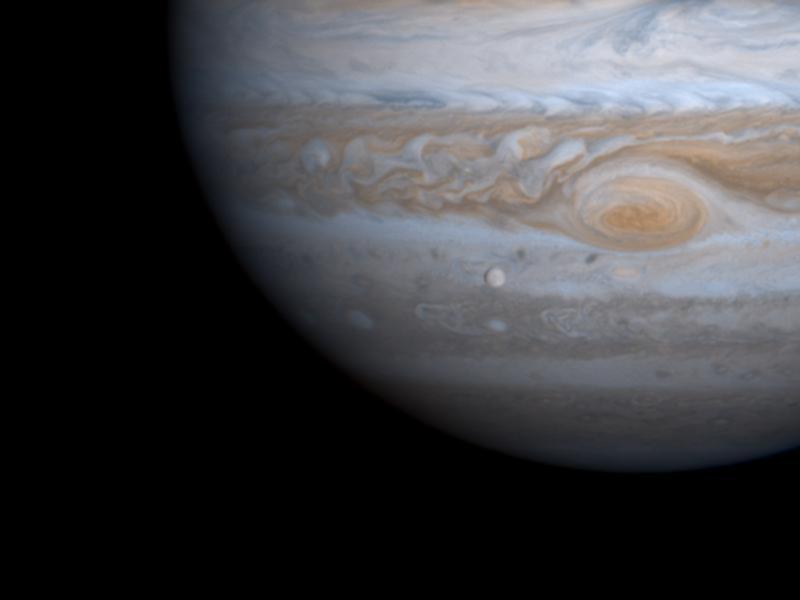NASA to launch Europa Clipper spacecraft to study Jupiter's moon despite questions over reliability
NASA has confirmed it is pushing ahead with plans to launch a spacecraft in October despite questions being raised over its reliability.

NASA has approved next month’s launch to Jupiter’s moon Europa after reviewing the spacecraft’s ability to withstand intense radiation.
Questions about the reliability of the transistors on the Europa Clipper spacecraft arose earlier this year after similar problems cropped up elsewhere.
With the tight launch window looming, NASA rushed to conduct tests to verify that the electronic parts could survive the $US5 billion ($A7.5 billion) mission to determine whether the suspected ocean beneath Europa’s icy crust might be suitable for life.
Sign up to The Nightly's newsletters.
Get the first look at the digital newspaper, curated daily stories and breaking headlines delivered to your inbox.
By continuing you agree to our Terms and Privacy Policy.Lift-off remains scheduled for October 10 aboard a SpaceX Falcon Heavy rocket.
NASA has three weeks to launch the spacecraft before standing down for more than a year to await another proper planetary alignment; the spacecraft needs to swing past Mars and then Earth for gravity assistance.
Project manager Jordan Evans said the transistors - located in circuits across the entire spacecraft - are expected to degrade when Europa Clipper is exposed to the worst of the radiation during the 49 flybys of the moon.
But they should recover during the three weeks between each encounter, said Evans of NASA’s Jet Propulsion Laboratory.
It will take six years for Europa Clipper to reach Jupiter, where it will orbit the gas giant every three weeks.

Dozens of flybys are planned of Europa as close as 25km, allowing cameras and other instruments - including ice-penetrating radar - to map virtually the entire moon.
Europa Clipper is the biggest spacecraft ever built by NASA to investigate another planet, spanning more than 30 metres with its solar panels unfurled.
